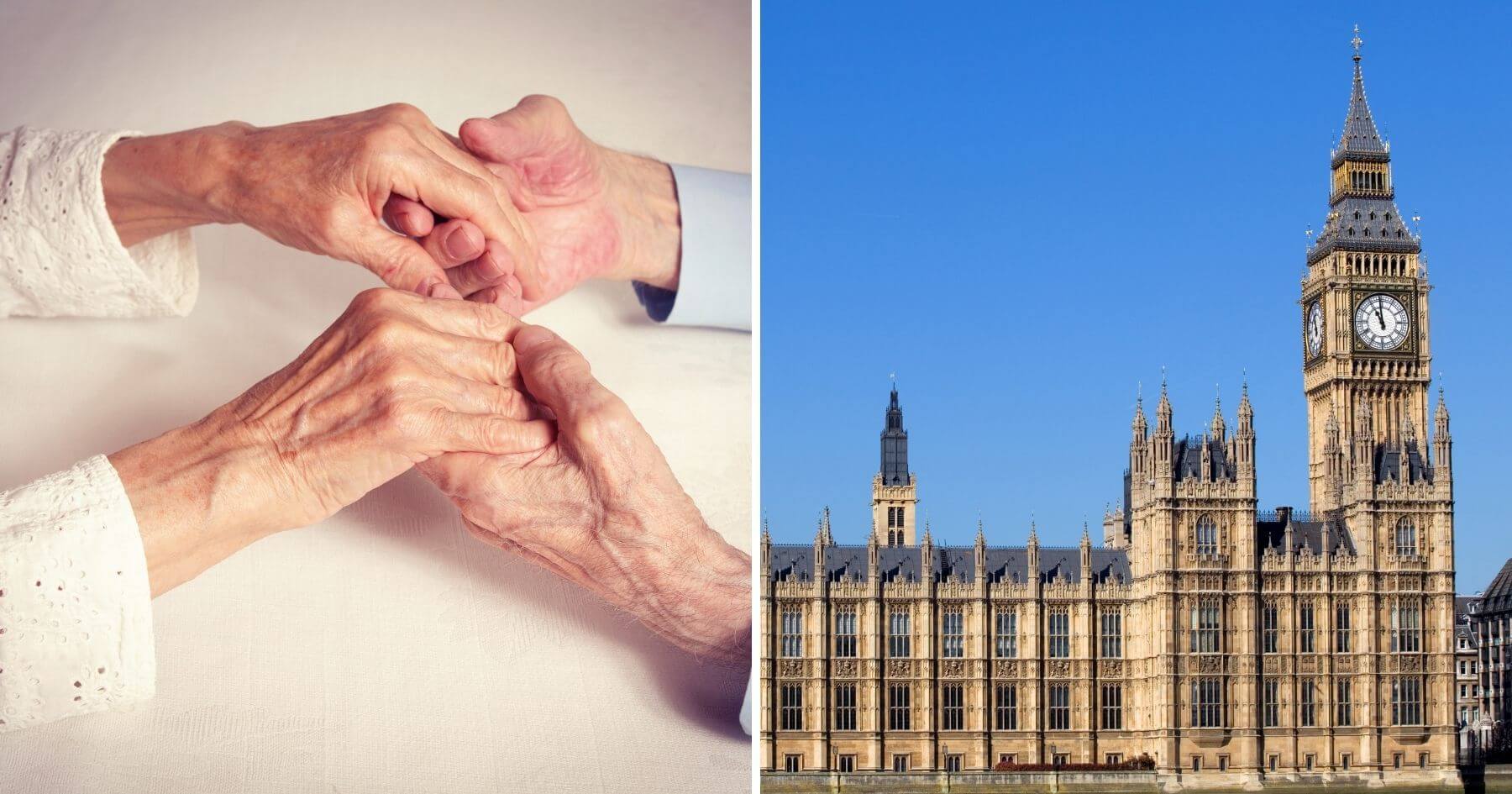New polling shows that only 35% of MPs support introducing assisted suicide to the UK.
The polling, released by YouGov today, shows that only 35% of MPs support a law change to allow “doctors to assist in the suicide of someone suffering from a terminal illness”.
The described law change is roughly in line with the law change that has been proposed as part of Baroness Meacher’s assisted suicide Bill, which is currently progressing throught the House of Lords.
The lowest support was from Conservative MPs, with only 30% supporting a law change along these lines. The Conservative Party currently has an eighty-three seat majority in the House of Commons.
When asked if they would support a law change to allow “doctors to assist in the suicide of someone suffering from a painful, incurable but NOT terminal illness”, support dropped to only 16%.
Only 16% of Conservative MPs, 15% of Labour MPs and 7% of SNP MPs supported a law change along these lines.
YouGov collected the data by conducting online interviews with 100 MPs from across the House of Commons as part of their monthly MP Omnibus survey.
Pushing the boundaries
Chair of the pro-assisted suicide group, ‘Dignity in Dying’, Baroness Meacher’s private member’s bill on assisted suicide received its First Reading in the House of Lords on 26 May this year, and a Second Reading is expected in the autumn.
The Bill follows the Marris-Falconer Assisted Dying Bill (2015), which was defeated by a majority of 330 to 118 MPs.
According to supporters of the Bill, Dignity in Dying, “[t]he bill is modelled on legislation that has been in place in Oregon, USA for over 23 years […]”.
Other countries that have introduced supposedly restricted assisted suicide and euthanasia legislation have seen an expansion of their laws as medical professionals and activists push the boundaries of acceptable practice.
Expanding euthanasia law
In the Netherlands, Canada, and Belgium, the law that permits euthanasia has also rapidly expanded to include more categories of people.
Belgium legalised euthanasia in 2002 and since then, the practice has even been extended to children. The current law allows euthanasia if the patient is in a state of constant physical or psychological pain.
There is now a renewed push for euthanasia to be available for those who are healthy but have decided they have led a ‘fulfilled life’.
In the Netherlands, where euthanasia has been legal since 2002, doctors are now permitted to secretly sedate patients who have dementia before euthanising them. The law permits voluntary euthanasia for anyone over the age of 16, and children aged 13-15 can be euthanised with their parents’ consent. Earlier this year, the Dutch government said it would be changing the regulations to allow doctors to end the lives of terminally ill children between the ages of one and twelve.
Euthanasia has been legal in Canada since 2016. In 2019 however, following the euthanising of Alan Nichols, a former school caretaker who was physically healthy but struggled with depression, the legal requirement that a person be terminally ill before administration of euthanasia was dropped.
Bill C-7, recently passed by the Canadian Parliament, intends to further extend euthanasia legislation to people with disabilities and those with mental health issues.
Right To Life UK spokesperson, Catherine Robinson, said: “It is wonderful to see that so many MPs are speaking sense on this issue, especially as we anticipate the return of Baroness Meacher’s Bill to Parliament this autumn”.
“The overwhelming majority of doctors who work in end-of-life care, such as Dr Baker, continue to oppose assisted suicide. They know from experience that what vulnerable people need at the end of their lives is love and support, not offers to assist their death”.
“We also have increasing evidence that people’s wishes to die are transient. The Irish Longitudinal Study on Ageing, for example, surveyed 8,174 people over the age of 50 and found that 3.5% expressed a wish to die at Wave 1 of the study. However, 72% of these participants no longer reported a wish to die when reassessed two years later. We should seek to care for those experiencing suicidal thoughts, rather than state-sanction their deaths”.
“It is no coincidence that many prominent people with disabilities, plenty of disability rights groups, and many respected healthcare professionals continue to rally against introducing assisted suicide, for it strikes against the very heart of the dignity and care we ought to afford to each human being”.












